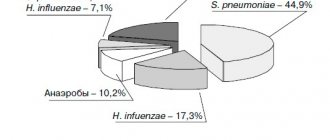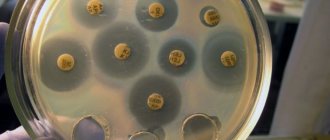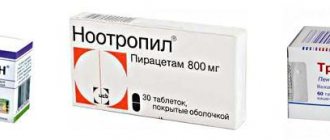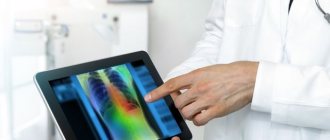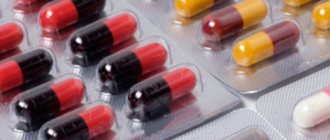Let's figure out how to take care of children during the season of infectious diseases and not harm them with your care - especially when they have prescribed a lot of pills.
Flu and ARVI in a child are already a reason to get nervous and lose sleep, in the case of the little ones. Of course, medications are necessary and useful, but don’t forget about the side effects. Still, a child’s body often reacts more sharply to pills than an adult. You shouldn’t refuse treatment, but minimizing side effects is possible and necessary.
Is it possible to reduce the harm of drugs?
All seasonal diseases, including the most harmless ones, can attack the immune system. So, when a child stops chasing around the apartment and making TikToks during illness, this is normal.
If doctors have prescribed a lot of pills, it is worth remembering that medications can often put a heavy burden on the body and harm the intestinal microflora. This is a necessary “evil”, but it can be fought.
To minimize the harm from medications, it is better to take antibiotics and Polysorb together.
Enterosorbent Polysorb has a pronounced detoxifying effect and is safe for children from the first days of life. The drug binds and removes from the body all kinds of toxins that are dangerous to the baby’s health: waste products and decay of viruses and bacteria, as well as the metabolism of drugs. Polysorb should be taken one hour before meals and medications. This way, the sorbent will collect decay products of pathogenic organisms and reduce the toxic effects of medications, but will not affect the effectiveness of the prescribed tablets.
Sergey Yakovlev: “Antibiotics should be used when a viral infection is complicated by a bacterial one”
Unlike ARVI, COVID is an insidious disease, and self-medication, including large amounts of antibiotics, is deadly.
“Do you know who dies in our hospitals first? Those who self-medicated are 95%,” Moscow Mayor Sergei Sobyanin said on the Rossiya 1 TV channel.
The mayor warned that improper treatment increases the risk of severe complications from COVID-19. If you become infected with coronavirus, you must first consult a doctor and get a prescription for the necessary medicine, he emphasized. Despite the availability of medical care, many people take the disease too lightly. They consider it something akin to a cold and, feeling unwell, they simply begin to steam their feet in hot water, drink tea with raspberries and handfuls of medicine. At the same time, they very often forget about loved ones and neighbors. After all, a person sick with COVID is contagious 2 days before the onset of symptoms and about 10 days after. Alas, few people think not only about those around them, but also about themselves.
An unpleasant norm in many pharmacies across the country has now become the appearance of customers with obvious signs of ill health and a standard request: give me something antiviral and antibiotics. According to unofficial statistics from pharmacists, today there are 30% of such clients. They buy for future use - after reading information on the Internet. But that's not so bad. Most likely, all those expensive pills bought for a rainy day will simply be thrown away when they expire.
It’s worse when people, after reading other people’s case histories and comparing them with their own symptoms, begin to self-medicate. There are many online advisers to help, offering recipes for universal therapy. Here is a standard video from the Internet: three medications mixed with each other will help everyone: “You drink everything four times a day. This should completely kill the virus, relieve inflammation in the lungs and completely cure you and your loved ones.”
Antibiotic is not prevention
And Health Minister Mikhail Murashko noted another dangerous misconception that now exists not only among patients, but also in the medical community itself. This is an inordinate addiction to antibiotics. Prescribing antibiotics to treat coronavirus is dangerous and unnecessary; they are needed only in case of complications, the Minister of Health said.
“Antibiotic therapy is not a direct therapy against coronavirus infection. Used for complications. In mild cases, it is not necessary and is dangerous,” the head of the Ministry of Health said in an interview with Channel One.
He was supported by a freelance microbiologist at the Ministry of Health, Professor Roman Kozlov, recalling that it is even more dangerous when antibiotics are used to prevent coronavirus. He noted that any antibiotics do not act on viruses and do not work to prevent possible bacterial complications from viral infections, RIA Novosti reports. In addition, the use of such drugs for other purposes may lead to the fact that other microorganisms living in the oral cavity and intestines, which can potentially cause diseases, become resistant to them and it will become much more difficult to treat possible bacterial complications.
Kozlov noted that in many Russian pharmacies there is an increased demand for antimicrobial drugs, which are often purchased for future use. Antibiotics are often taken for prophylaxis, the professor said. He called not to purchase such drugs without a prescription and asked pharmacists and pharmacists not to dispense them to patients without prescriptions.
Professor of the Department of Hospital Therapy at Sechenov University, President of the Alliance of Clinical Chemotherapists and Microbiologists of the Russian Federation Sergei Yakovlev said that the increased use of antibiotics due to COVID-19 will lead to the growth of resistant strains of microorganisms.
“According to some data, after the pandemic, there will be three to four times more resistant bacteria; some say that their number will increase by 50%,” Izvestia quotes him as saying.
It is clarified that strains that are resistant to drug effects are called resistant.
Yakovlev expressed concern that the uncontrolled use of antibiotics and antiseptics during the coronavirus pandemic will in the near future lead to a significant increase in resistance. At the same time, the scientist emphasized that exact figures will appear later, since calculations and analysis are necessary.
According to Yakovlev, the use of antibiotics has reached catastrophic proportions. They are prescribed in 90% of cases, but only 10% of patients who develop bacterial complications need these drugs.
The best prevention is not pills, but a mask
“Our approach to treatment has changed,” says general practitioner, pulmonologist at Sechenov University, Ph.D. Vladimir Beketov. – Data on the treatment of coronavirus infection have been accumulated, which are reflected in the serious study RECOVERY (The Randomised Evaluation of Covid-19 Therapy). The importance of steroid hormones in the treatment of COVID-19 has been statistically demonstrated. For certain indications, we continue to give anticoagulants. Steroid hormones are prescribed only in hospitals, since taking these drugs requires medical supervision. Self-medication is impossible with them. The administration of hormones leads to a change in the clinical picture in the form of a decrease in intoxication, a decrease in temperature, etc. We see that such therapy makes it possible to endure the disease with a lower risk of complications.
We also see that abandoning the widespread use of antibiotics, as the country’s leading pulmonologists are calling for, does not have any negative impact on patient mortality. Only a doctor can decide whether antibiotics are needed. How effective tocilizumab (a broad-spectrum immunosuppressive drug) and its analogues are and in what group of patients is currently being re-debated. These are the changes. But there is no need to say that the clinical picture has radically changed due to mutations of the virus, or that mortality or morbidity has increased. I repeat: there is no reliable scientific data for this.”
However, all these calculations by doctors are not at all intended to give advice to each of us on how and with what to treat the disease. When you feel an illness approaching, you should not self-medicate and run to the pharmacy instead of calling a doctor. Each person is individual, has characteristics of the course of coronavirus, as well as various concomitant diseases. By taking a medicine that helped a neighbor or colleague, you can seriously harm yourself. Doctors remind: when going to the pharmacy, it would be nice to know your diagnosis. And the best prevention of coronavirus is still not pills, even the most expensive and advanced ones, but vaccination, masks, gloves and social distance.
Expert commentary
Professor of the Department of Hospital Therapy at Sechenov University Sergei Yakovlev:
– COVID-19, like the flu, is a viral infection. Antibiotics only act on bacteria and do not act on viruses. Accordingly, taking antibiotics without a doctor’s prescription for influenza and COVID-19 is at least pointless. And maybe it’s potentially dangerous, because antibiotics are not harmless drugs; they can cause a number of side effects. In addition, taking antibiotics itself contributes to the formation of drug-resistant microbes in the human body. Therefore, antibiotics are used for viral infections only when the viral infection is complicated by a bacterial one. This happens a week or 10 days after the onset of the disease. It is important to understand that only a doctor can decide whether antibiotics are needed or not. If he prescribed it, you have to take it. But self-medication and the use of these drugs without a doctor’s prescription are dangerous.
Link to publication: Arguments and facts
Is it possible to use Polysorb while taking antibiotics?
It is possible and even necessary! Antibiotics kill not only dangerous bacteria, but also those that are friendly to our body - those that are a natural and necessary component of our microflora. Because of this, your child’s diarrhea can often be added to your assortment of everyday stress. That's a joy.
The dosage regimen is the same: Polysorb and antibiotics can be taken together. The main thing is not to forget: first the enterosorbent, only after an hour everything else. Reception can be continued after completion of the course. Polysorb after a course of antibiotics is like general cleaning for the gastrointestinal tract.
Yes, we know how hard it is to get kids to take all those nasty pills! Polysorb has a neutral taste and can be diluted in juice or water - this will clearly make life easier and save nerves for both parent and baby.
The gastrointestinal tract is the entry point for the virus.
The virus enters the body not only through the respiratory tract, but also through the cells of the gastrointestinal tract and liver, on the surface of which receptors (or entry gates) for the virus are also found. Therefore, a feature of COVID-19 is the high frequency of symptoms from the digestive system
.
Approximately 15% of patients with COVID-19 experience nausea and vomiting, loss of appetite, loose stools, and abdominal pain. Sometimes these symptoms turn out to be the first manifestations of the disease
, that is, they precede symptoms from the respiratory system, fever, etc. That is why experts around the world have concluded that
all patients with new gastrointestinal complaints should be tested for COVID-19
.
In addition, in approximately 1/3 of patients, especially with severe COVID-19, changes in the biochemical blood test are observed, indicating liver damage (increased AST, ALT, bilirubin, alkaline phosphatase, gamma-glutamyltransferase).
As a rule, all of the listed symptoms and abnormalities go away on their own during recovery. However, complications can also occur - the formation of erosions and ulcers, gastric bleeding and others.
The risk of contracting the virus, as well as complications of this infection, is higher in patients who had any chronic digestive disease before COVID-19. In addition, the complex treatment prescribed for COVID-19, in particular non-steroidal anti-inflammatory drugs (ibuprofen, etc.), antibiotics, antiviral drugs, etc., can have a negative effect on the digestive organs.
Why is Polysorb right for you?
- Recommended for use by people of all ages.
- Begins to act 1-4 minutes after administration.
- Does not contain preservatives, dyes or sweeteners. Neutral in taste.
- Gently removes harmful substances and normalizes intestinal microflora.
The dosage of the drug is calculated individually depending on its weight according to the instructions.
If you have difficulty calculating the individual dose of Polysorb, you can get a free consultation by phone: 8-800-100-19-89 or in the consultation section.

